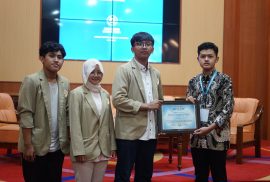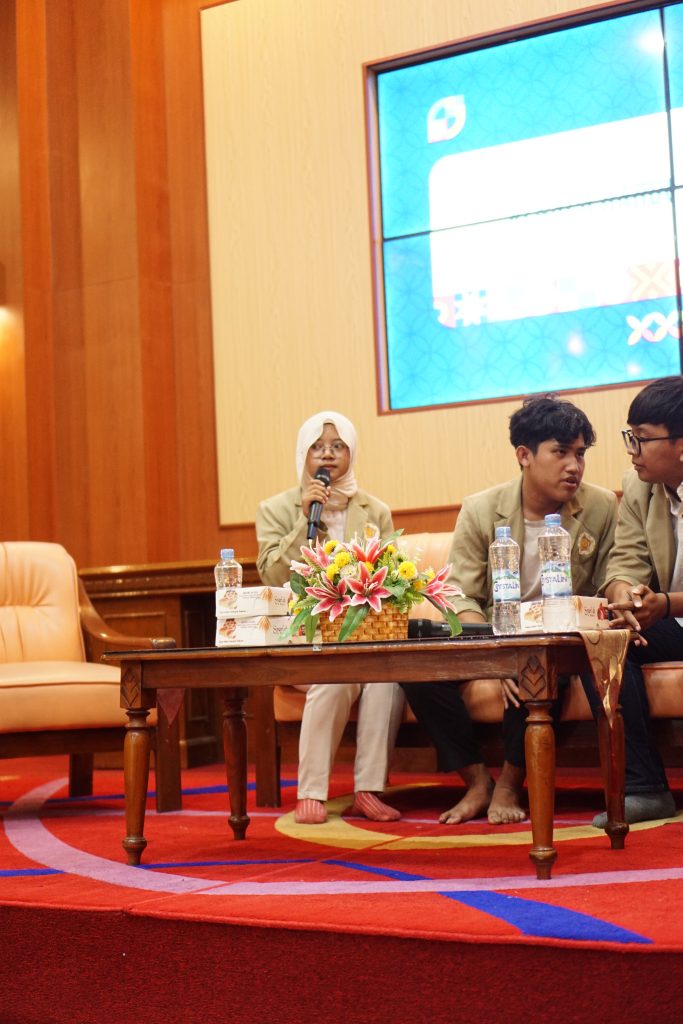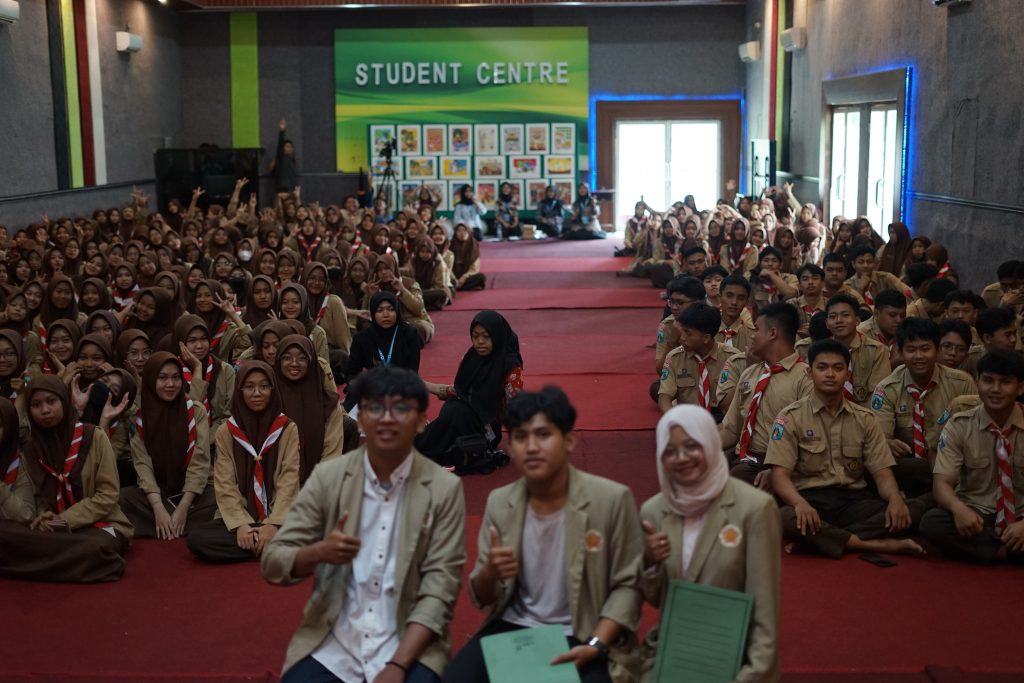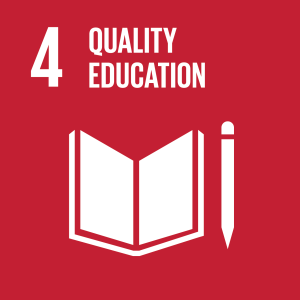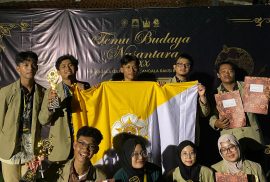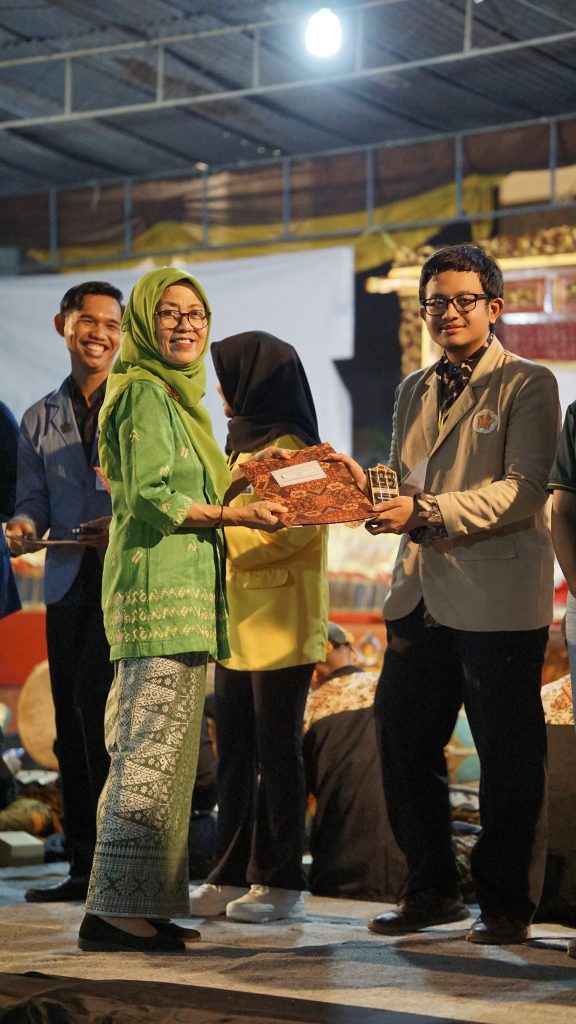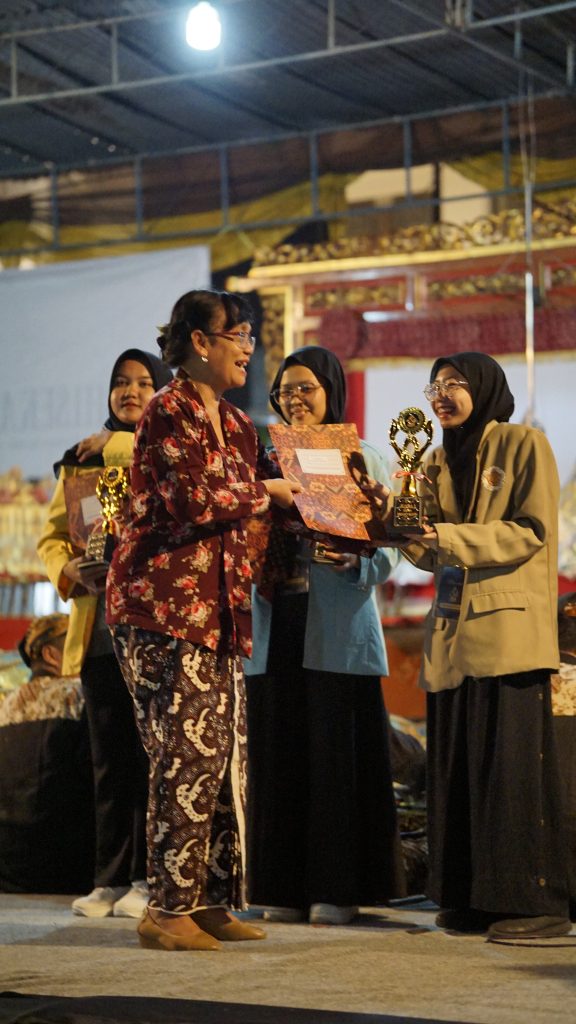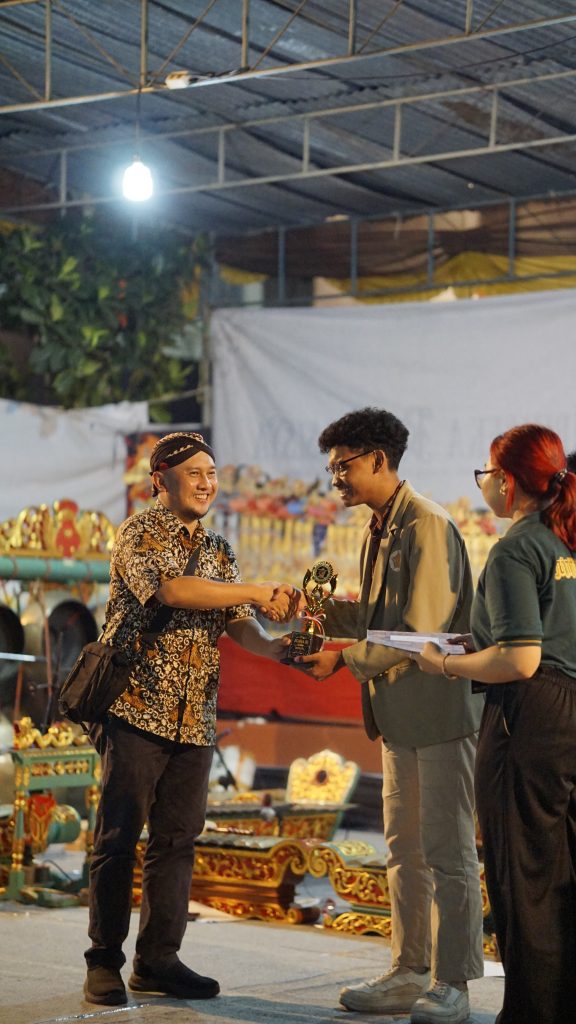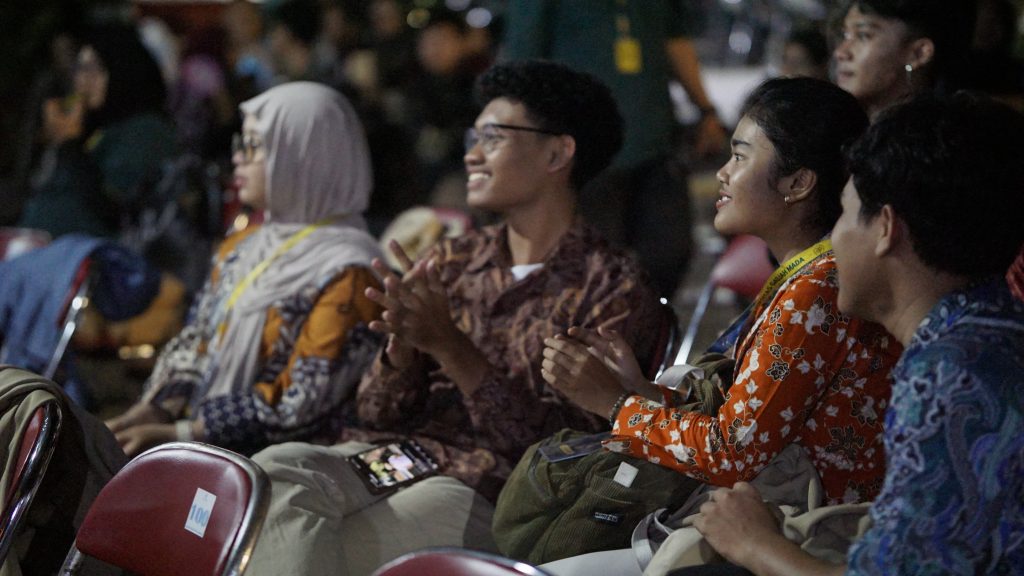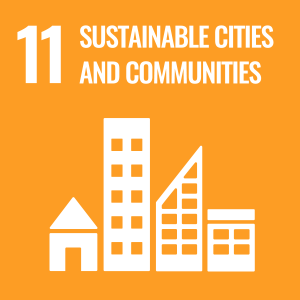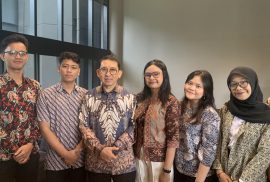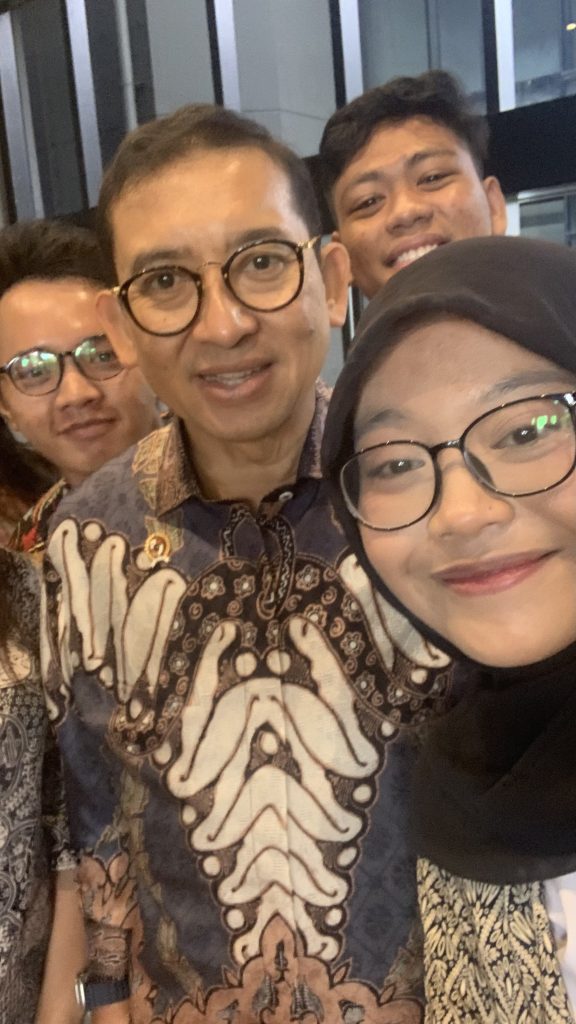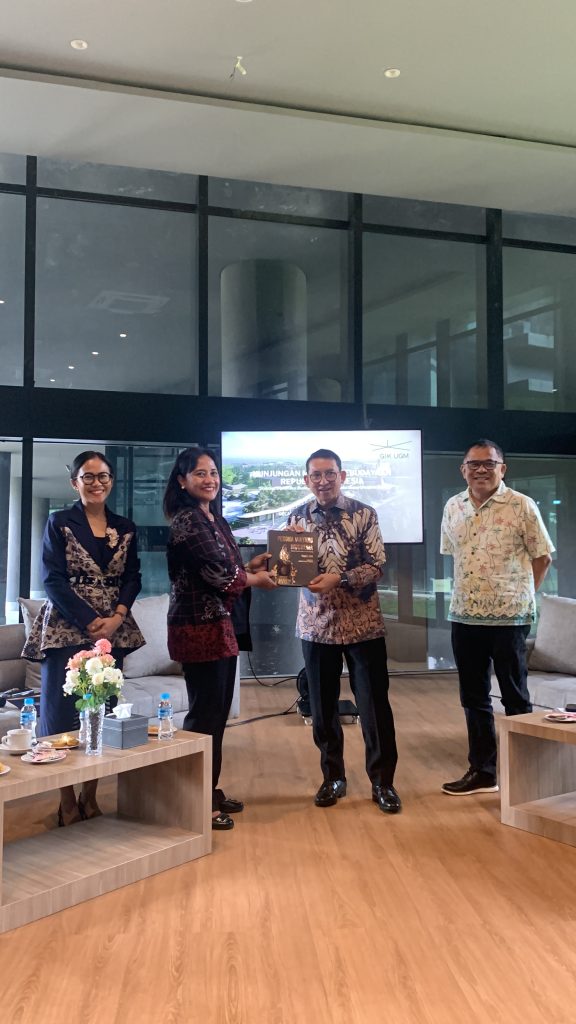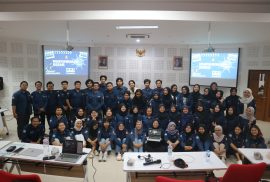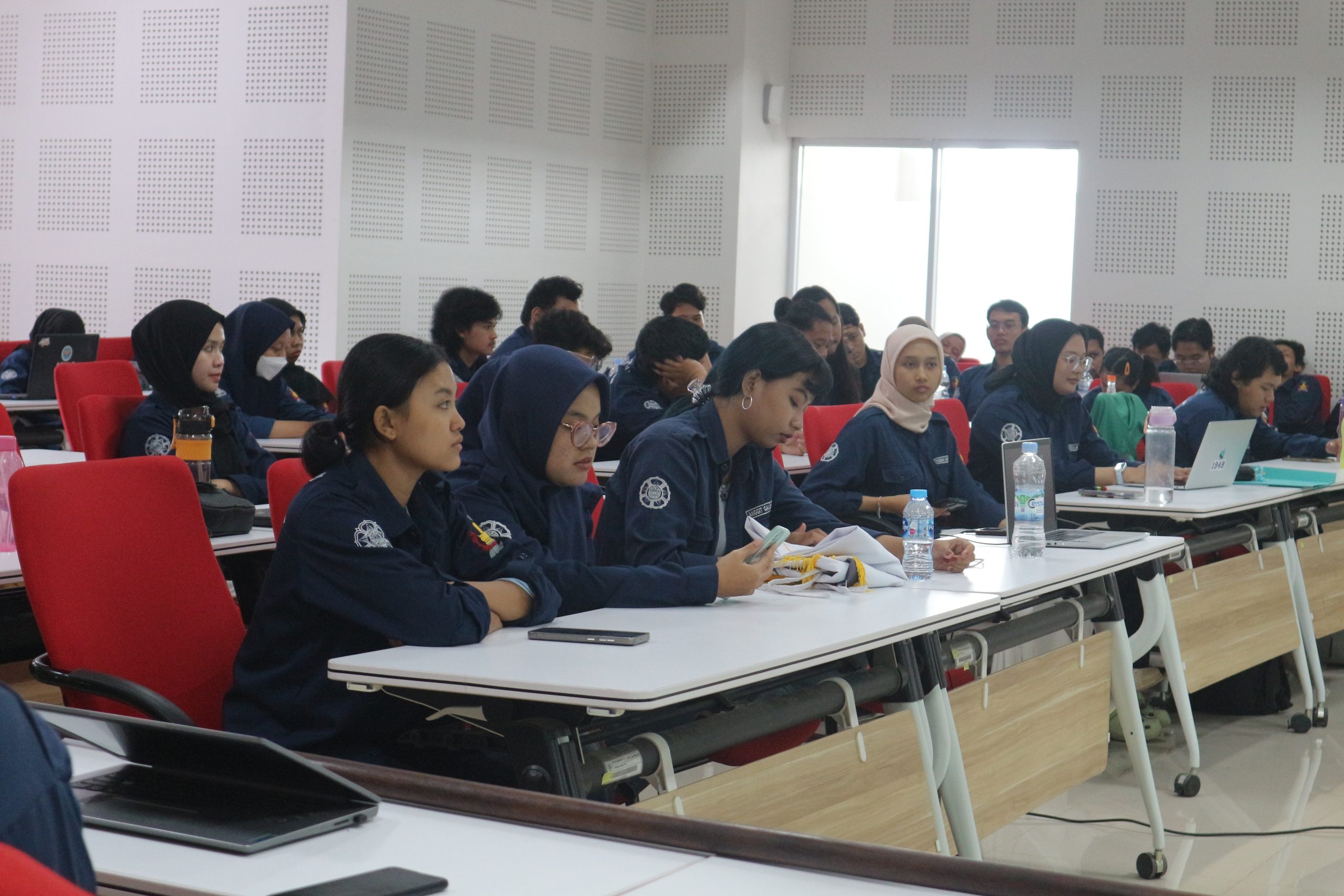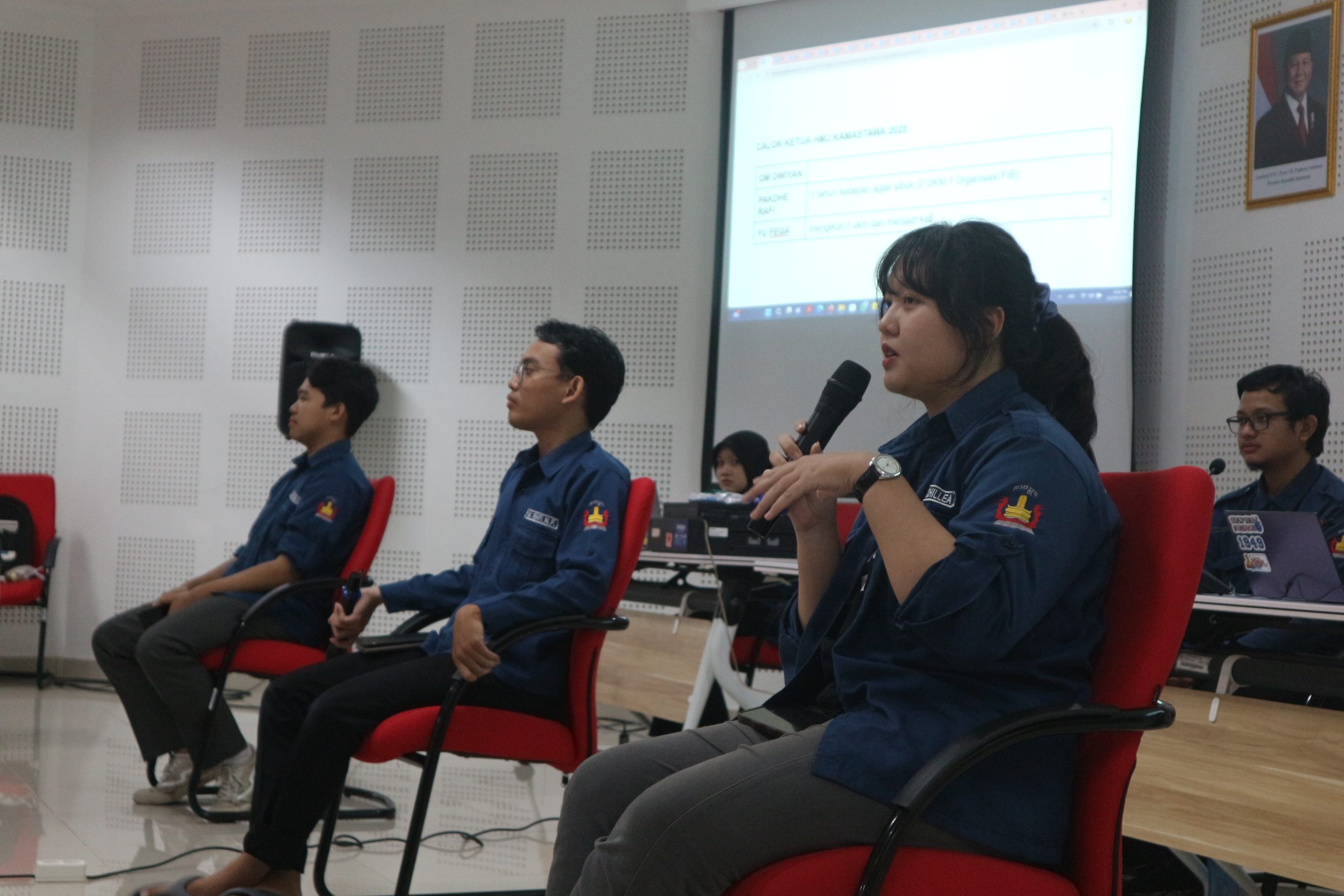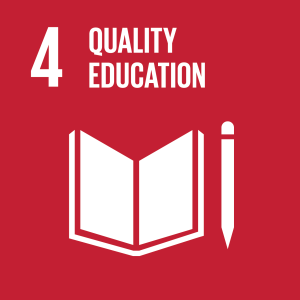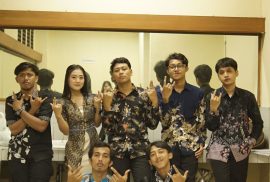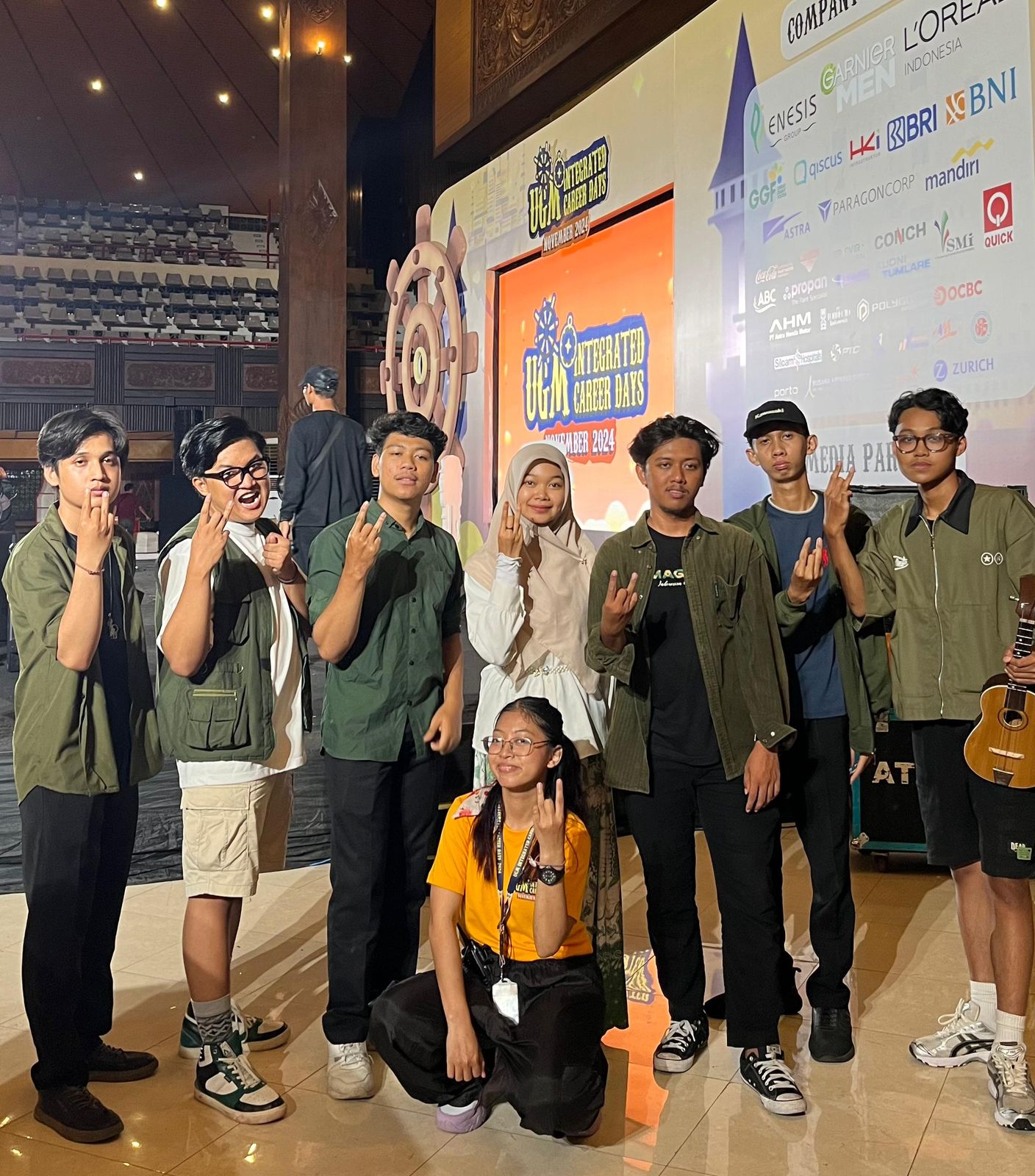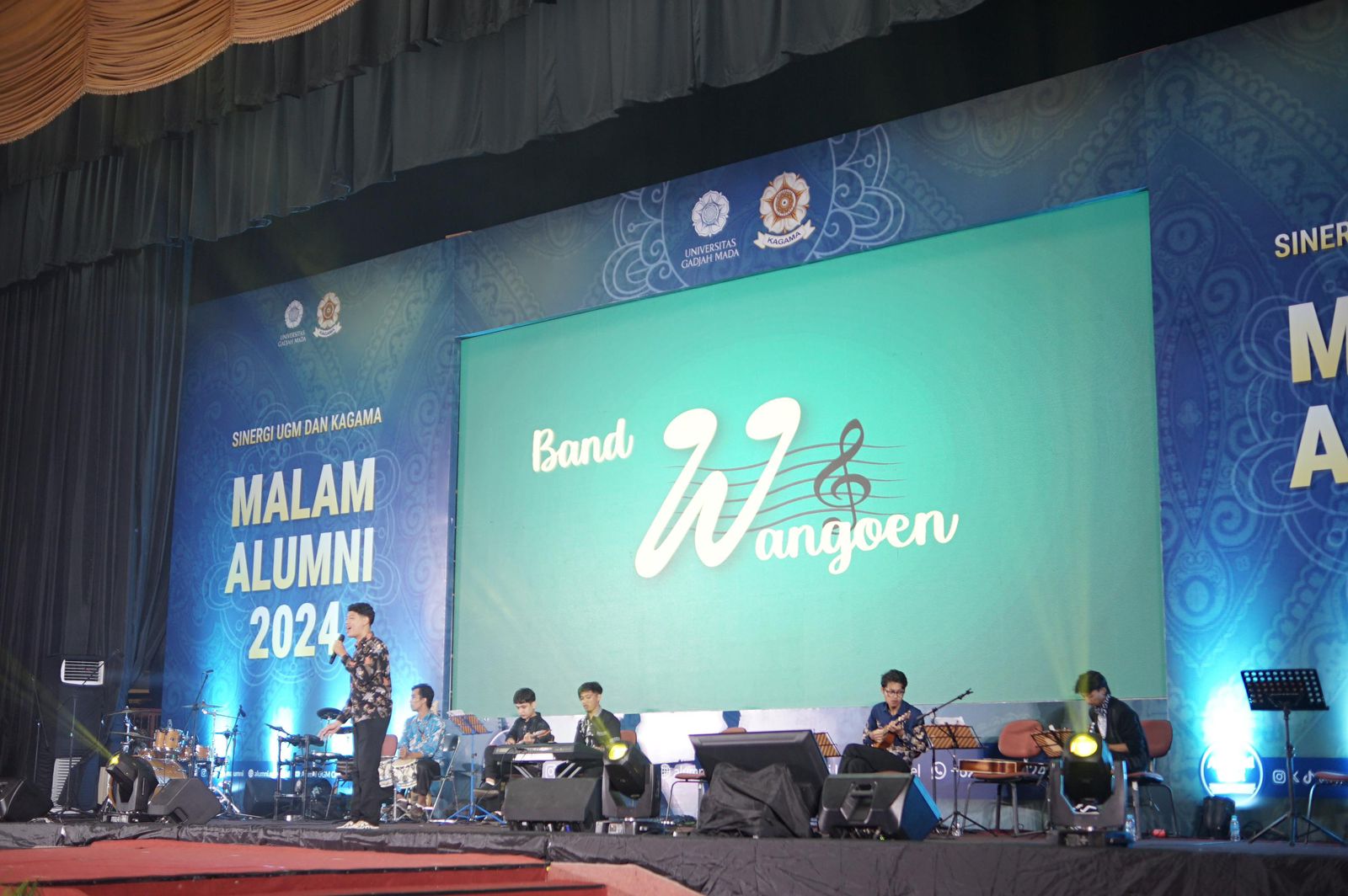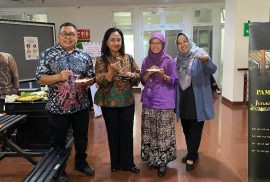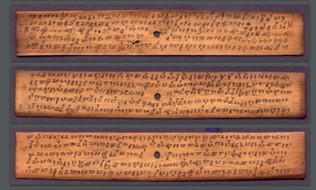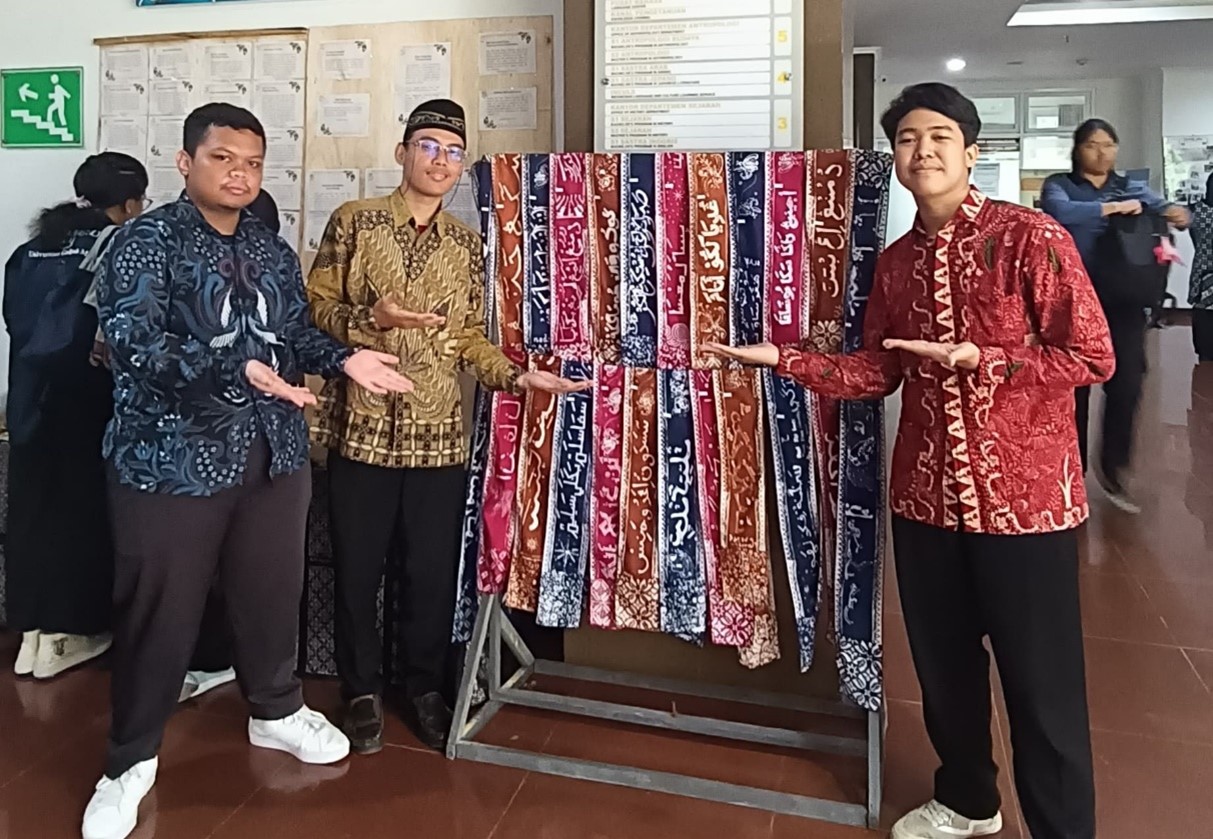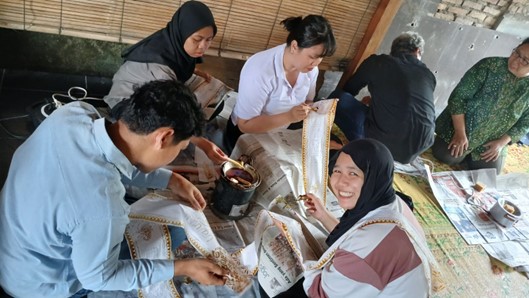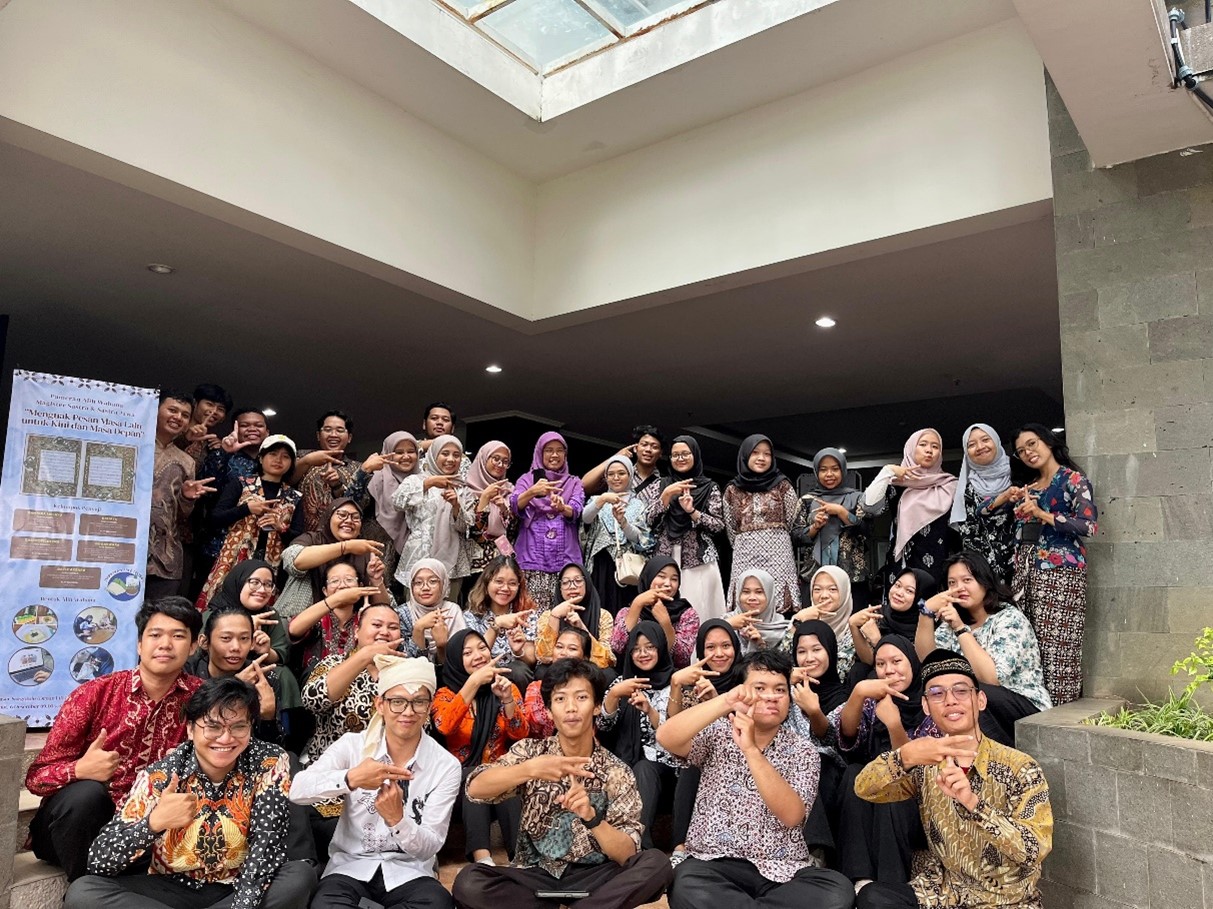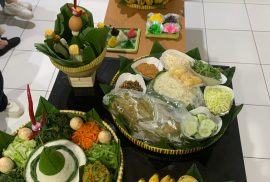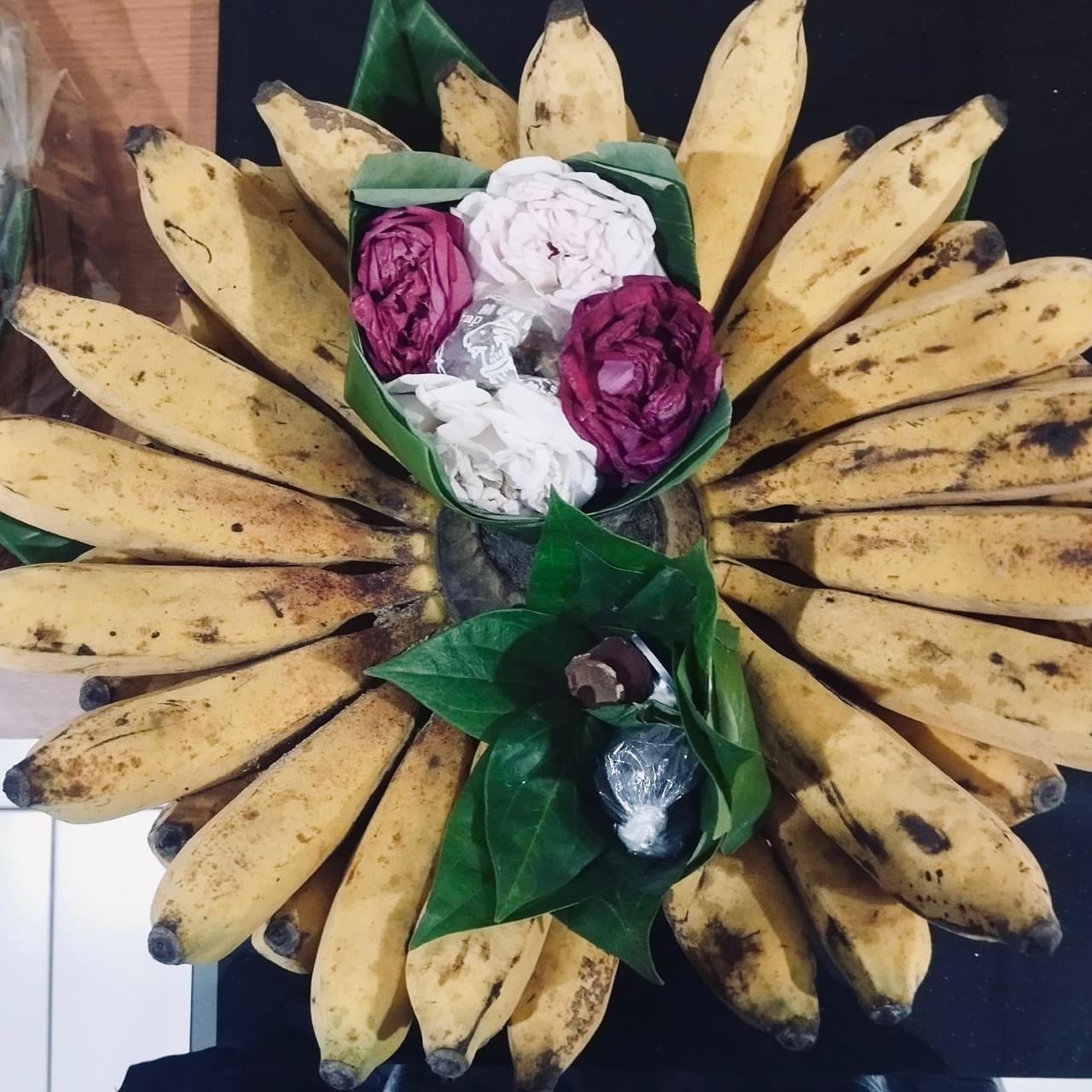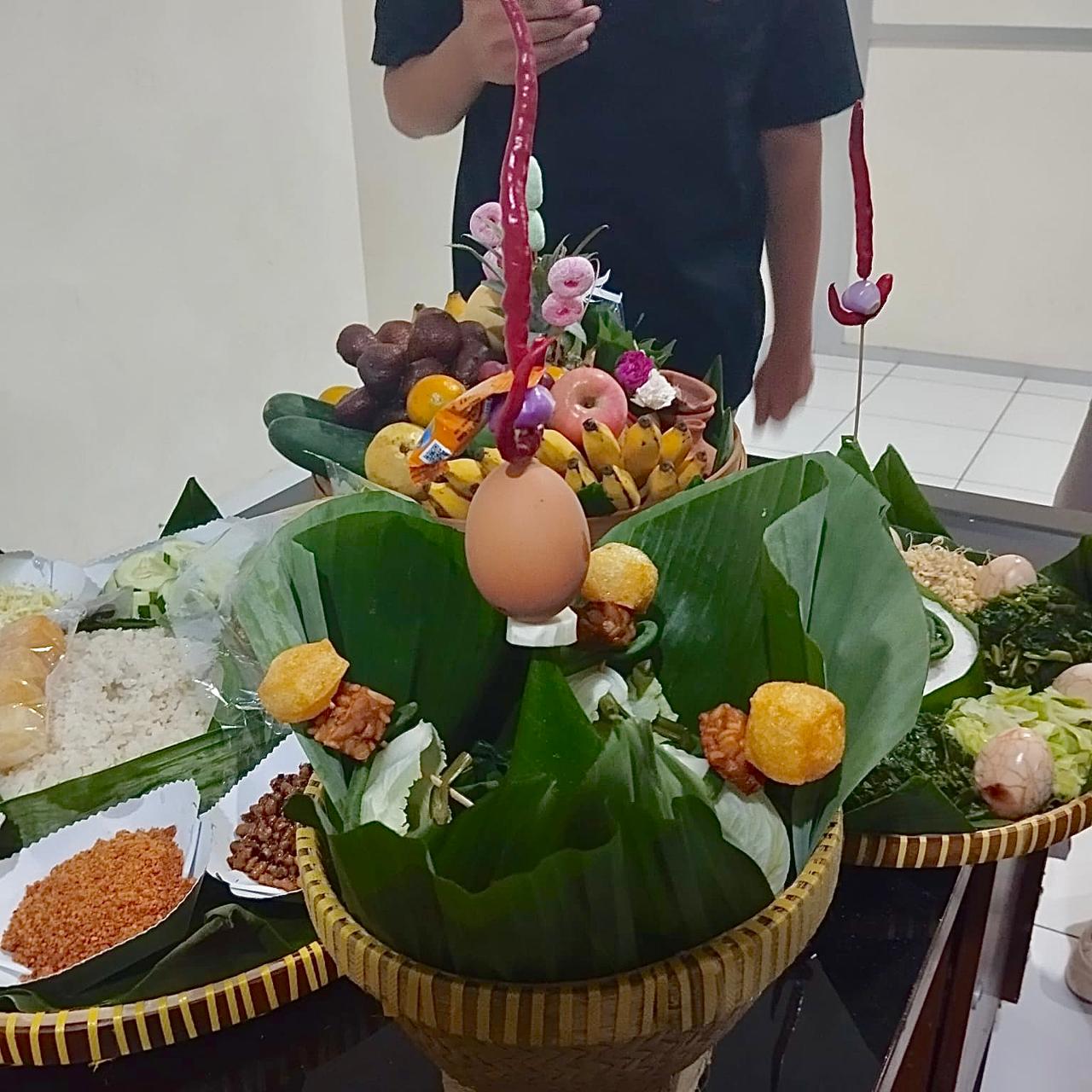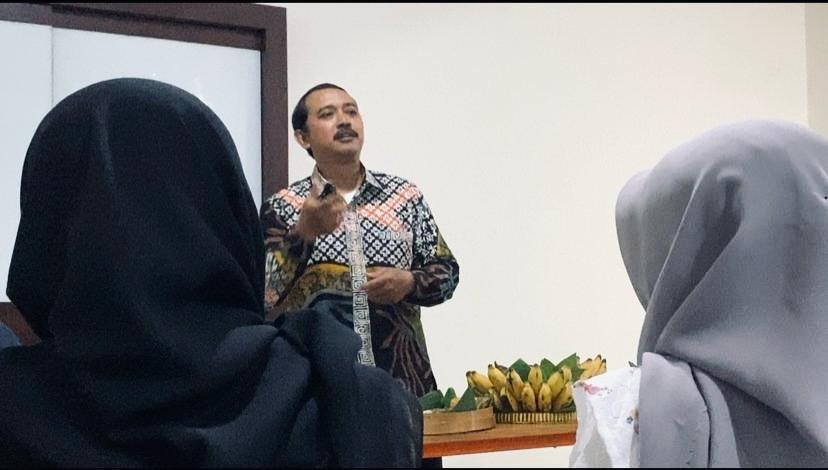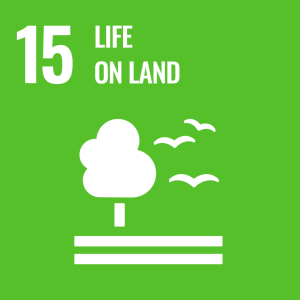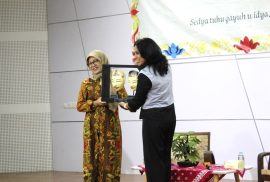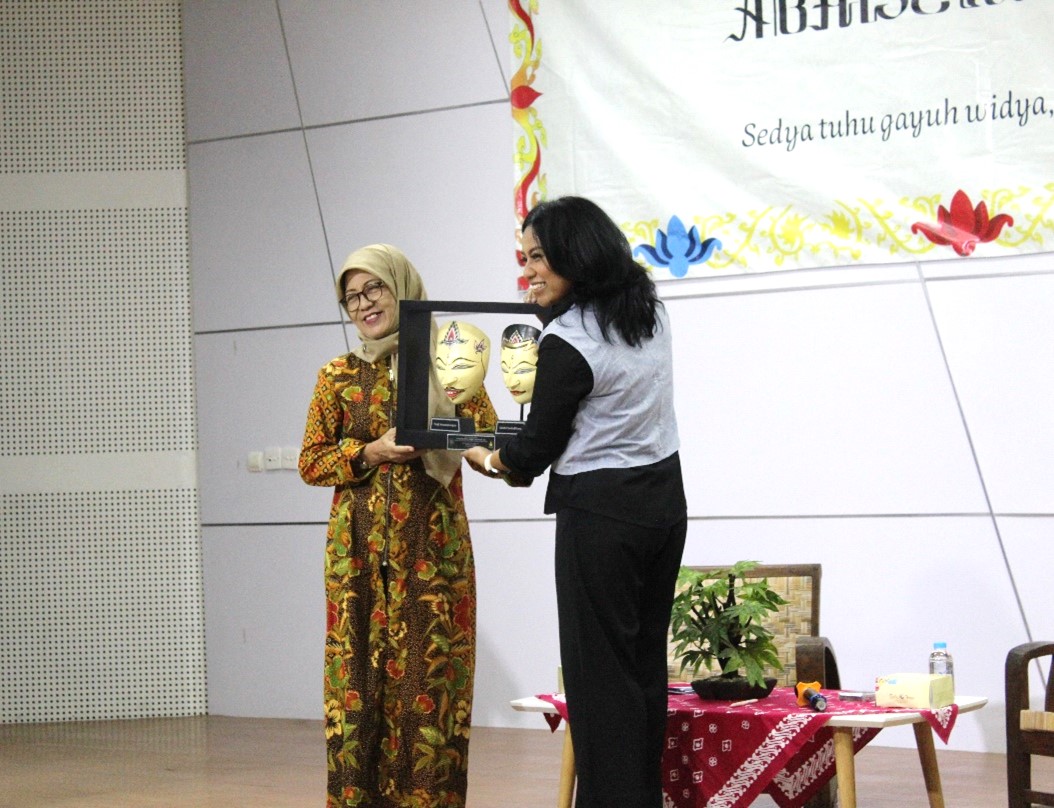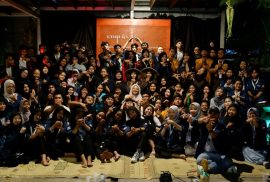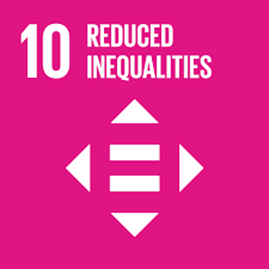Carrying Pride as a Student of Javanese Language, Literature, and Culture and Inspiring High School Students
College StudentNewsStudent's ActivityWorkshop Friday, 24 January 2025
No less than other well-known study programs, it turns out that being a student of Javanese Language, Literature, and Culture can also carry pride and inspire other people around! For example, Dian Nitami (Dian) and Miktahul Ulumudin (Ulum) below. Both are students majoring in Javanese Language, Literature, and Culture, class of 2023 and 2024.
Dian and Ulum were invited to the annual Campus Expo event held by the MAN 1 Tulungagung alumni association, through the Tulungagung Student Communication Forum (FKMT). This Campus Expo was held on Wednesday, January 15, 2025 at MAN 1 Tulungagung. Like Campus Expo events in general, here Dian and Ulum are in charge of educating and sharing experiences about being UGM students. They discussed topics around UGM entrance selection, college fee education, KIP scholarships, and a glimpse of UGM itself.
The Campus Expo itself was attended by 1st - 3rd year, but the seminar session was specifically attended by 3rd year where the class was certainly preparing for the exam to enter college. Dian was invited to be one of the speakers because she was one of the lucky students who had the opportunity to study at UGM with funding assisted by a scholarship. So at this event Dian gave a testimonial that scholarships at UGM are very open to students from any entrance selection path.
From Dian and Ulum's point of view, MAN 1 Tulungagung students were certainly very happy because they could meet their seniors who were studying at UGM. Then the impressive occasion was when the speakers entered, they were greeted with the Pionir celebration song with the enthusiasm of Mantasa (the name for MAN 1 Tulungagung students) overflowing. Even in the closing session, it was enlivened again by the Pionir celebration dance so that this indicated that MAN 1 Tulungagung students were really enthusiastic about participating in this seminar session.
For Dian, the impression gained from this experience was a sense of joy because this was the first time Dian had the opportunity to be a speaker who of course could educate and motivate the MAN students.
With this valuable story from Dian and Ulum, it is hoped that this can be an inspiration for other student to always be able to provide benefits and spread positive enthusiasm to people around them, that being part of the family of Javanese Language, Literature, and Culture students is a pride and not less cool than other majors.

